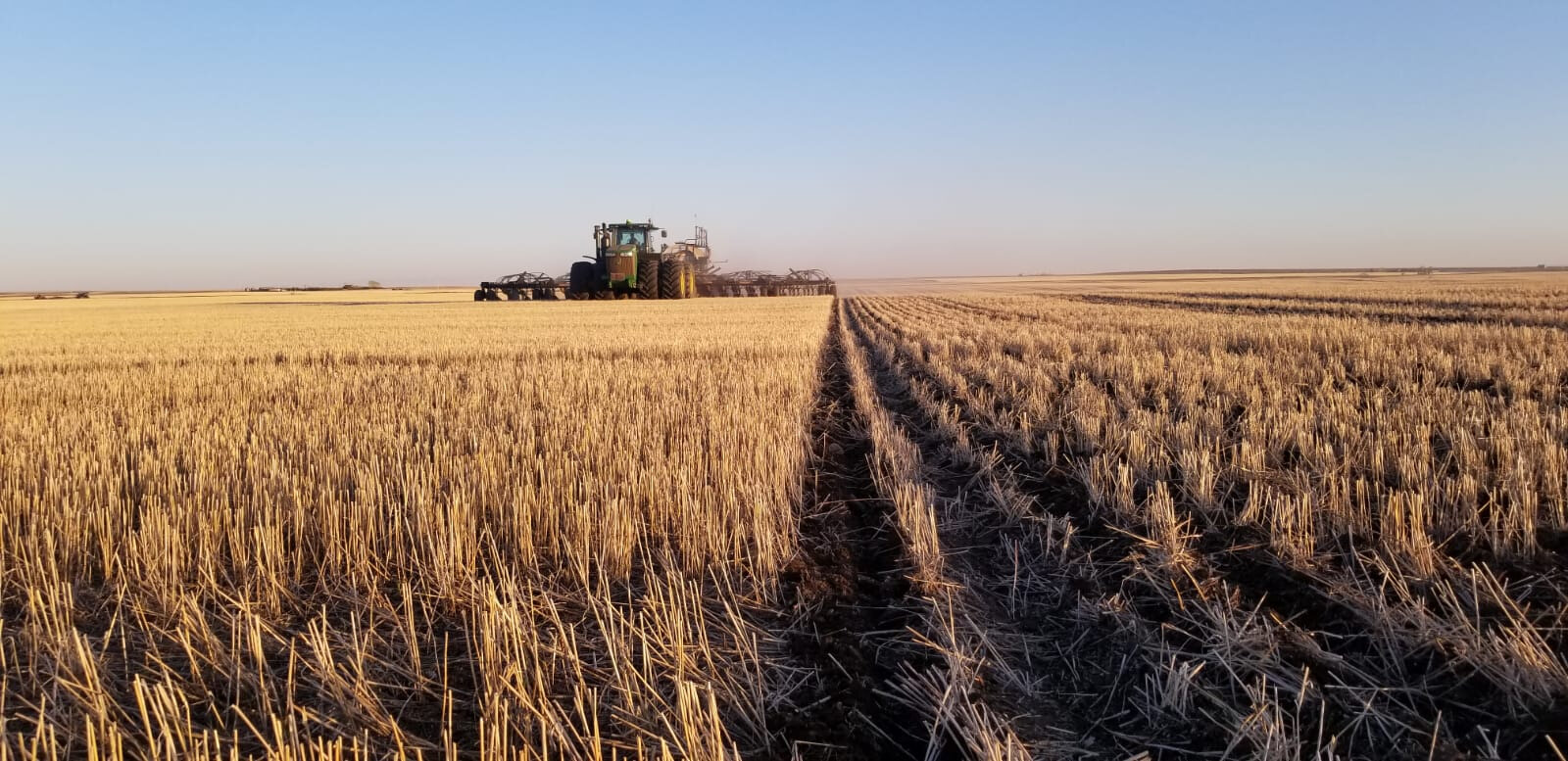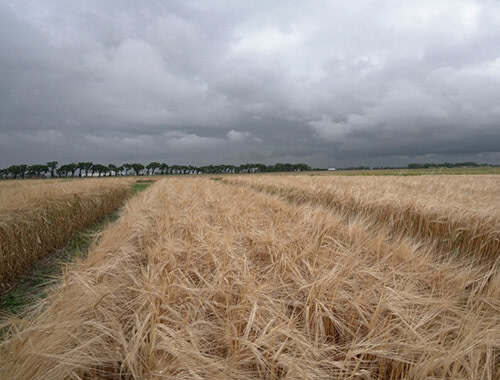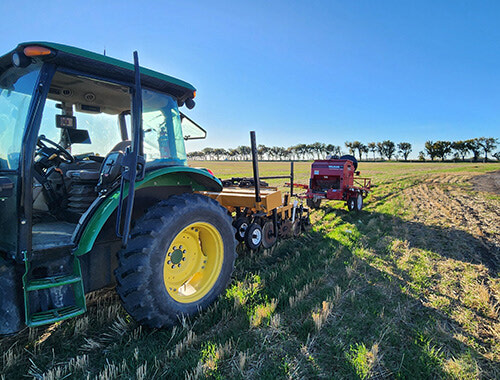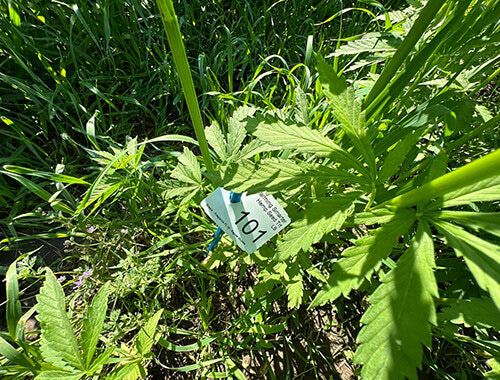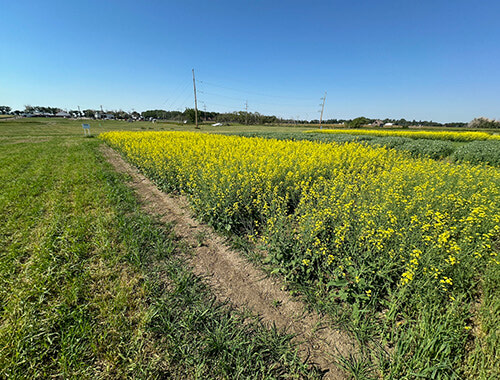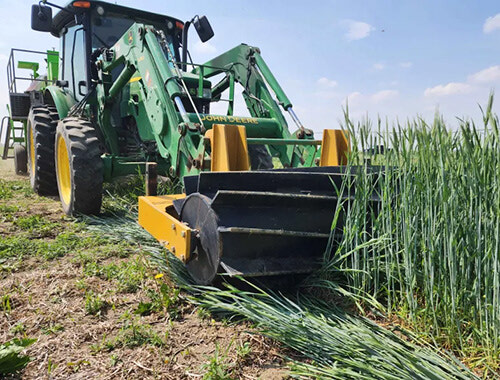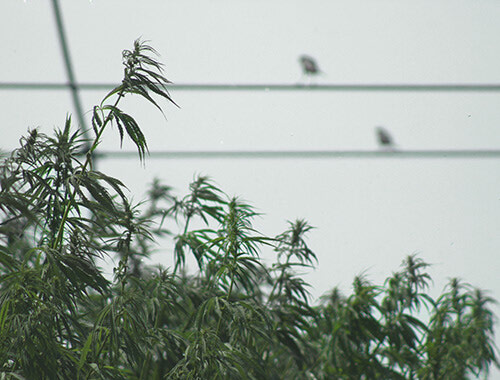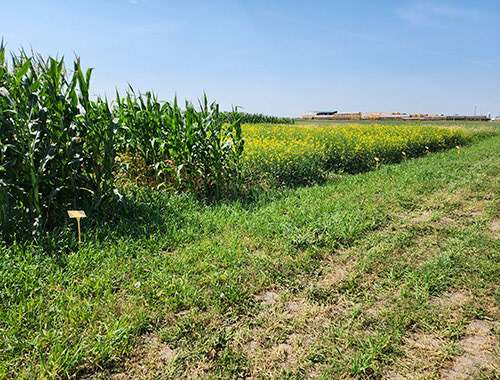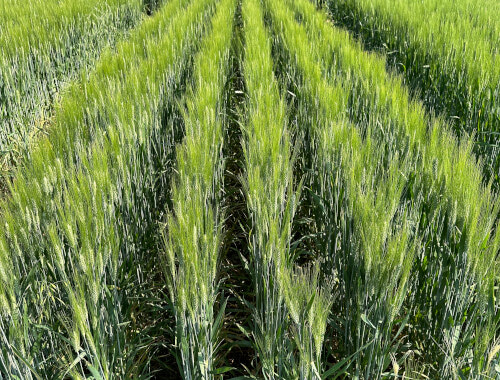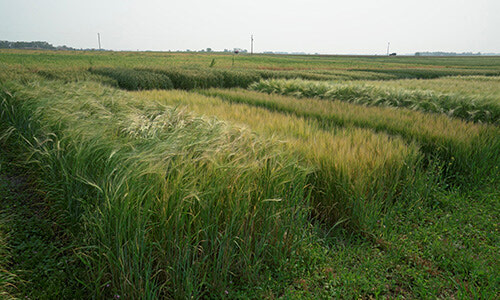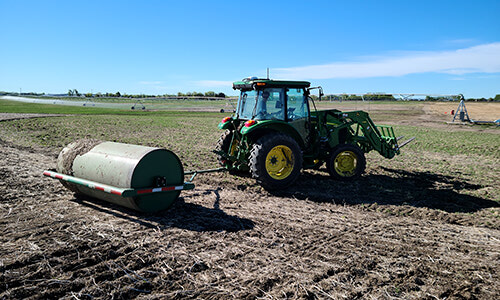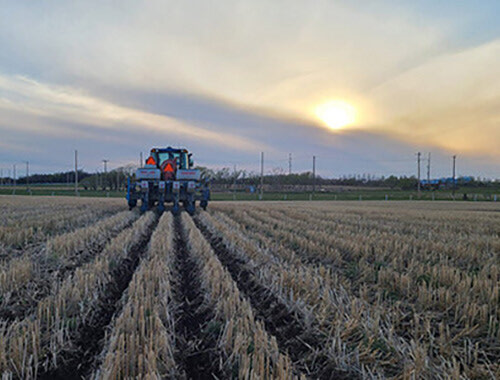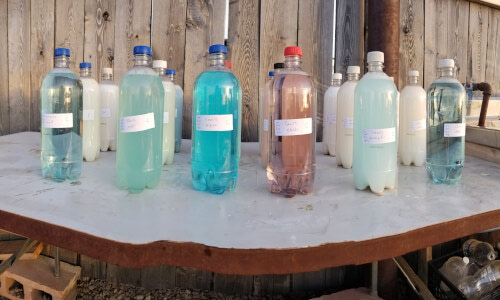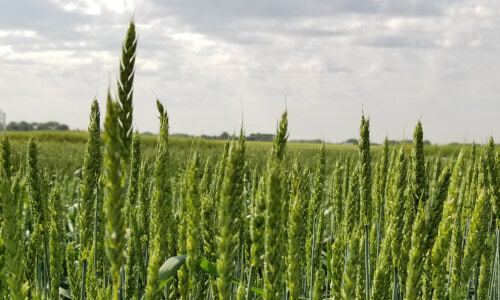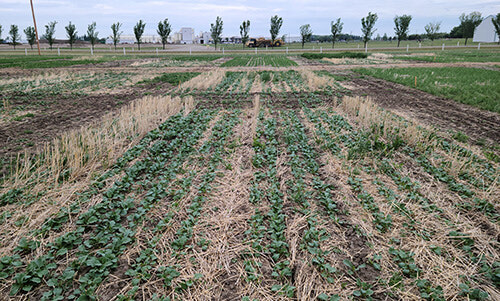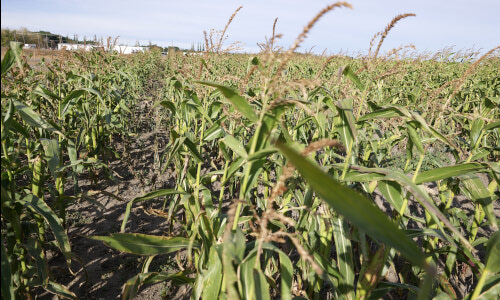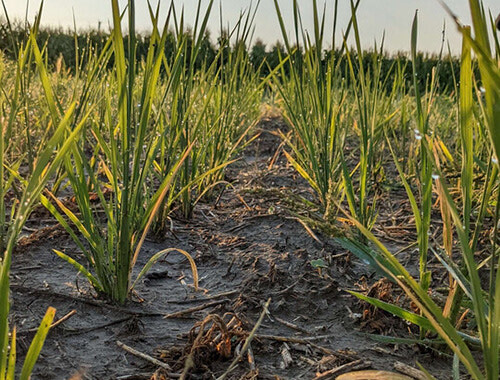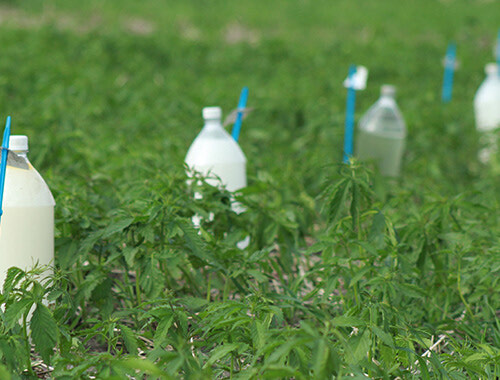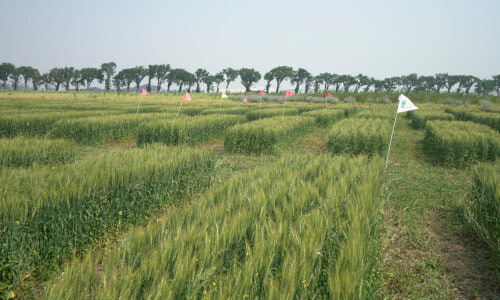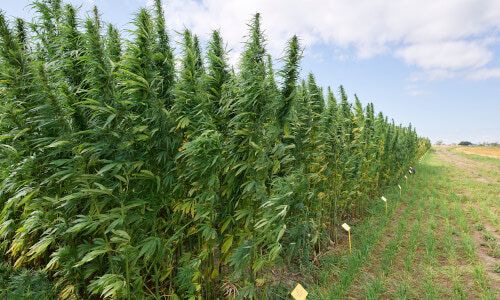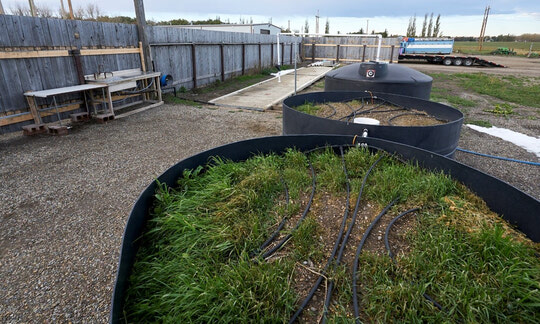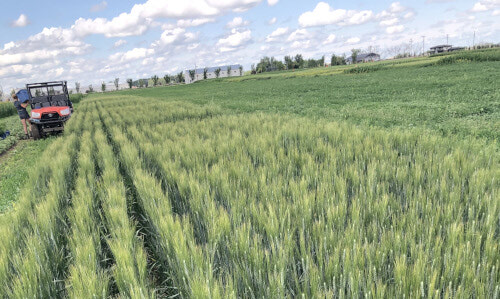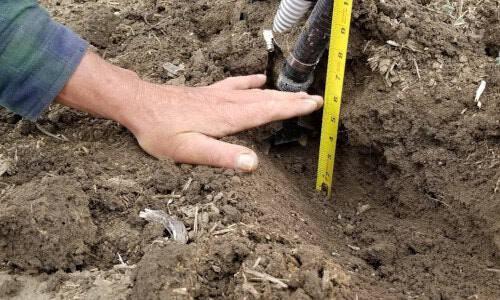Agronomy Research Projects
2025-2029
Very few crop varieties grown today have specific nutrient recommendations and instead rely on those for older cultivars. This project will collect the crop yield data necessary to update nutrient response information for these modern varieties so farmers can optimize their economic returns and environmental impacts.
2025-2029
Beef cattle feed producers in southern Alberta stand to improve water and nutrient use efficiencies, and enhance their land's productivity and economic outcomes by adopting a double cropping system. This study will identify the optimal winter cereal and second forage crop options along with the harvest timings to maximize silage yields and ROI.
2025-2028
Exploring the feasibility and benefits of deep banding fertilizers with the strip-till passes for irrigated canola production under southern Alberta growing conditions.
2024-2027
Identifying effective seed treatments and seeding strategies to improve hemp seed emergence and survivability without undermining yield stands to reduce costs for growers and increase the profitability of the crop
2023-2027
Farmers in southern Alberta have a vested interest to protect their soils from wind erosion overwinter and trap soil moisture to combat summer droughts. However, they require options that won't interrupt their cash crop rotations. Fall-seeded camelina stands to provide an answer to both of these concerns with overwinter protection while being a cash crop.
2022-2027
In response to growing interest of cover crops, we have begun a 4-year project investigating the viability, management, and benefits of their adoption. While it is known that cover crops have many benefits for erosion control and weed suppression, we want to explore the lengths of their benefits for your soil.
2024-2027
Evaluate the performance of fall field retting, augmented fall field retting, and an overwinter field retting to create recommendations for hemp growers. Additionally, identify seeding rates and harvest timings to promote the best quality and quantity of yields.
2022-2027
Annual crop systems can be optimized with the addition of cover crops. By terminating the cover crops at the right time, you can provide your cash crop with an extra source of organic matter, wind cover, with an edge in weed competition.
2021-2025
This study will clearly identify the risks and benefits (in terms of crop stand establishment, yield, and quality) associated with ultra-early plantings of CWAD in western Canada over a wide range of climatic conditions, including dormant-seeded situations.
2022-2025
Farmer yields are managed by balancing cultivar selection and agronomic practices. We hypothesize that feed barley yields could be improved by adopting new cultivars and improved agronomic practices.
2022-2024
Land rollers are commonly used to push rocks into the soils and improve harvest operation during silage crop production. Other benefits of land rolling
2020 - 2024
Extended grazing is a key component of many beef operations increasingly cow-calf operations in western Canada use corn grazing in late fall/early winter. Benefits include increased yield, energy content, and increased average daily gain for late fall/early winter grazing of pregnant cows. However, pure stands of corn are low in dietary crude protein thus unsuitable for grazing of other classes of cattle with higher nutrient requirements.
2020-2023
This study proposes to test the efficiency of management practices including strip tillage and precision planting in managing crop residues and improving canola emergence, growth, and yield.
2019-2023
Biostimulants are a relatively new class of crop additive that are suggested to promote healthy growth of crops resulting in higher yield/quality crops. Their use has expanded after the changes in regulations on fertilizers in Canada
2019-2022
Canada and the U.S. produce approximately 86 MMT of wheat per year. Still, grain yield in both countries rarely surpasses 50 bu/ac. This project aims to identify the management practices that contribute to higher yields.
2017-2023
This project will evaluate the viability, impact, and benefits of including cover crops in crop rotations across Prairie Canada (including MB, SK, and AB).
2019-2023
Precision planters are typically used to seed conventional row crops such as corn or soybeans, however producers are experimenting with them to plant small grains and other crops.
2022-2023
An exploratory project initiated spring of 2022 to evaluate feasibility of upland rice production in southern Alberta.
2022-2023
Industrial hemp has emerged as an important multi-purpose end-use crop with a strong and growing market demand in Alberta. The lack of effective strategies for proper management of weeds is one of the major challenges to hemp producers in Alberta.
2018-2022
Fusarium head blight (FHB) has become a major limitation to cereal crop production across much of the prairies in recent years, particularly for bread and durum wheat growers, and the disease is also impacting barley growers.
2018-2022
This project combines seeding rate and date trials that were separate in the first project to study their interaction effects. The fertility trial determines the optimum rate and timing of fertilizer to maximum hemp fiber and grain yield.
2019-2022
This project allowed Farming Smarter to build a large-scale biobed to biofilter rinsate generated from our research activities.
2018-2023
The development of high value specialty crops is crucial for a diversified and robust agricultural industry in Canada. It is very important for on-farm profitability and is a key driver for value added industries.
2018-2021
This study determines if the periodic deep banded application of immobile nutrients (P, K & Cu) can reduce nutrient stratification while improving nutrient uptake and crop production on land previously under direct seeding for >10 years.

